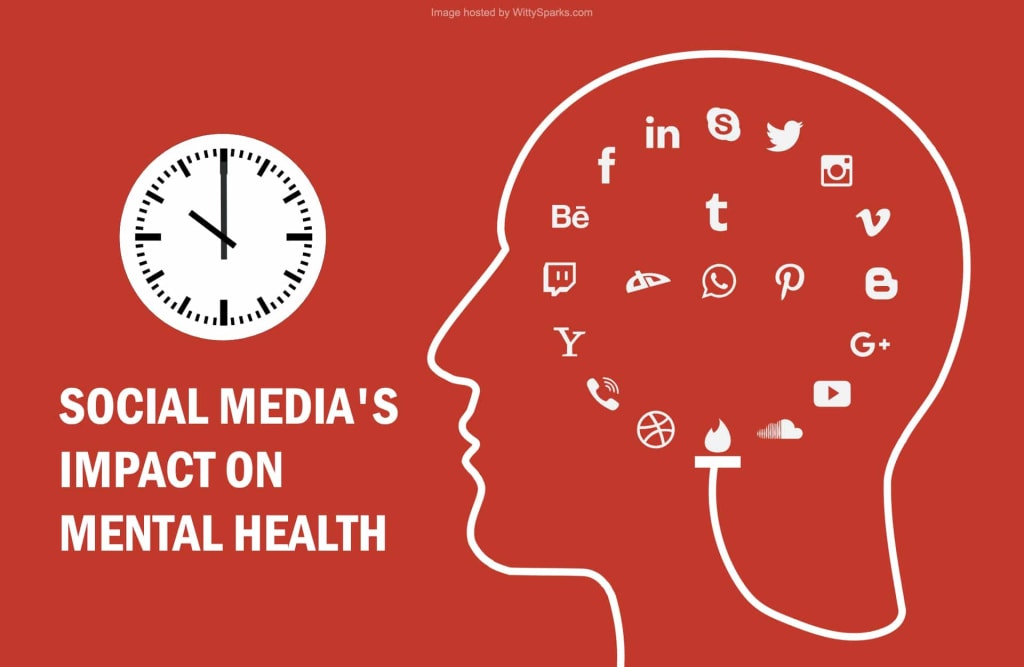The Impact of Social Media on Mental Health
Understanding the Connection

In the age of digital connectivity, social media has become an integral part of our lives. It has revolutionized the way we communicate, share information, and stay connected with others. However, the rise of social media has brought about concerns regarding its impact on mental health. This article explores the connection between social media and mental well-being, shedding light on the potential risks and benefits. By understanding the complex relationship between social media and mental health, we can make informed decisions about our online habits and promote a healthier digital environment.
1. The Rise of Social Media:
The advent of social media platforms has transformed the way we interact with others and consume information. From Facebook and Instagram to Twitter and TikTok, these platforms offer a multitude of opportunities for communication and self-expression. The convenience and accessibility of social media have led to its widespread adoption, with billions of users worldwide. While social media has undeniably revolutionized communication, its impact on mental health warrants closer examination.
2. The Link between Social Media and Mental Health:
a. Social Comparison and Self-Esteem:
Social media platforms often create a space where people can showcase curated versions of their lives. This phenomenon can lead to social comparison, where individuals compare their own lives to the seemingly perfect lives of others. This constant exposure to idealized representations can negatively impact self-esteem and contribute to feelings of inadequacy.
b. Cyberbullying and Online Harassment:
The anonymity and distance provided by social media platforms can embolden individuals to engage in cyberbullying and online harassment. Victims of such behaviors may experience increased levels of anxiety, depression, and stress, as the online environment becomes a constant source of negativity and intimidation.
c. Fear of Missing Out (FOMO):
Social media platforms create a fear of missing out (FOMO) phenomenon, where individuals experience anxiety or distress at the thought of missing out on social experiences or events. Constant exposure to others' highlight reels can amplify this fear, leading to feelings of isolation and inadequacy.
d. Sleep Disruption and Addiction:
The addictive nature of social media, with its continuous stream of content and notifications, can interfere with healthy sleep patterns. The blue light emitted by screens also disrupts sleep patterns. Sleep deprivation, in turn, can negatively impact mental health, contributing to mood disorders and cognitive impairments.
3. Positive Aspects of Social Media:
Despite the potential negative impacts, social media also offers several positive aspects that can contribute to mental well-being.
a. Connection and Support:
Social media platforms can provide opportunities for individuals to connect with like-minded people, share experiences, and find support. Online communities focused on mental health, for example, can foster a sense of belonging and reduce feelings of isolation.
b. Information and Awareness:
Social media plays a vital role in disseminating information about mental health, promoting awareness, and reducing stigma. Online resources and campaigns provide valuable knowledge, support, and access to professional help.
c. Creative Outlet and Self-Expression:
Social media platforms offer spaces for creativity, self-expression, and personal growth. Through sharing art, writing, or personal stories, individuals can find outlets for self-discovery and catharsis, positively impacting mental well-being.
4. Promoting Healthy Social Media Use:
To mitigate the potential negative impacts of social media on mental health, individuals can adopt strategies to promote healthy online habits.
a. Limit Screen Time:
Setting boundaries on screen time and actively engaging in activities away from social media can help maintain a healthy balance between online and offline life.
b. Cultivate Awareness and Mindfulness:
Developing an awareness of how social media affects
mental health and practicing mindfulness can help individuals consciously navigate the online space. Being mindful of emotional responses and taking breaks when needed can reduce the impact of negative experiences.
c. Curate Your Online Environment:
Being mindful of the content you consume and curating your online environment can promote a healthier digital experience. Unfollowing accounts that evoke negative emotions or create unrealistic expectations can contribute to a more positive online atmosphere.
d. Seek Support:
If social media use begins to significantly impact mental well-being, it is important to seek support from friends, family, or mental health professionals. Open conversations about online experiences can provide valuable insights and support.
Conclusion:
Social media has undoubtedly revolutionized the way we connect and share information. However, the impact on mental health cannot be ignored. By recognizing the potential risks associated with social media use and adopting healthy online habits, individuals can promote their own mental well-being. Moreover, efforts should be made at the societal level to create a safer online environment, addressing cyberbullying and promoting digital literacy. By fostering a culture of responsible social media use, we can harness the benefits while mitigating the potential negative impacts, ultimately ensuring a healthier relationship with social media in the digital age.





Comments
There are no comments for this story
Be the first to respond and start the conversation.